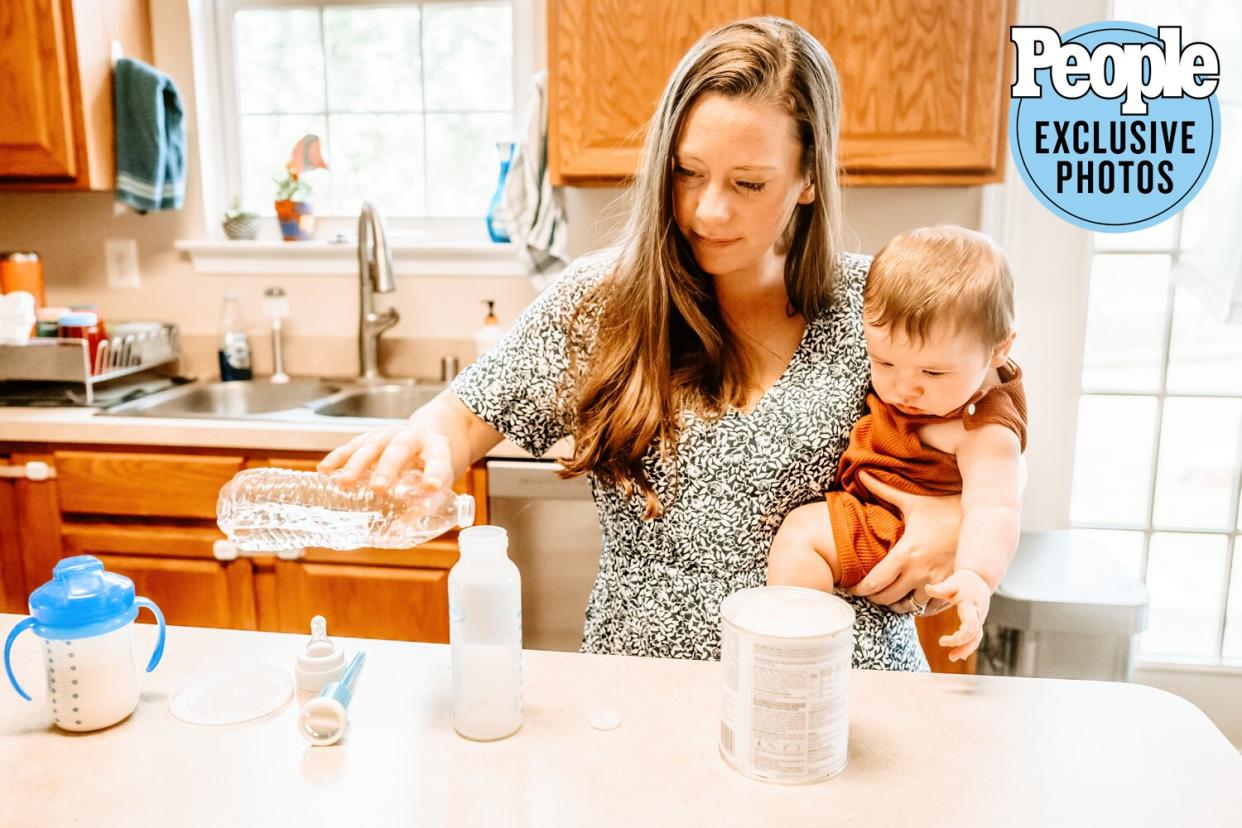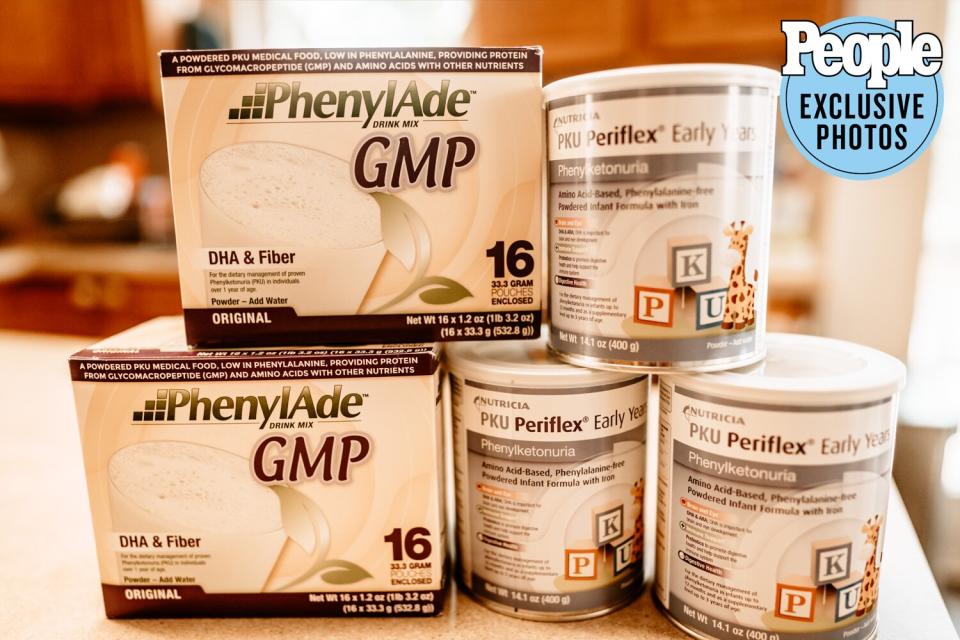Mom Opens Up About Sons' Condition That Limits Them to 2 Grams of Protein a Day

The Moody Momma
Alexa Beichler sits in her kitchen slowly pouring Goldfish out of its wrapper. It's snack time in her Leesburg, Virginia, home and that means cheesy crackers for her 4-year-old son Carson.
But for Beichler's other two sons, Jax, 6 months, and Taylor, 20 months, both of whom were born with a metabolic condition called classic phenylketonuria (PKU), in which their body is unable to process an amino acid found in protein, the kid-favorite crackers aren't an option.
The lifelong condition requires Beichler's younger two sons to be on medical formula as part of a specialized diet that limits them to 2 grams of protein a day.
"My boys have classical PKU and their variant, their genetic mutation, is actually only 10 percent function of that enzyme so they have some of the worst tolerance around. They only get 2 grams of protein a day," she tells PEOPLE exclusively. "One gram comes from their formula and one gram comes from food. Six or seven crackers or two Oreos is a gram of protein."
While Carson gets to snack on Goldfish, Beichler says she makes a "fake" version of the cracker so her son Taylor doesn't feel left out. (As Jax is only 6 months, he solely relies on his formula).
Never miss a story — sign up for PEOPLE's free daily newsletter to stay up-to-date on the best of what PEOPLE has to offer, from juicy celebrity news to compelling human interest stories.

The Moody Momma
"[Taylor] sees his brother having Goldfish so then I have to get this fake cheese and make this fake goldfish," says Beichler. "It's a whole thing with snack time. Every breakfast, lunch and dinner I'm making two different meals each time. I sit in the kitchen a long time to make things as best as I can for him."
In addition to the medical-grade formula, Beichler is able to offer her younger boys 20 "free foods," among them apples, grapes and oranges, as well as packaged medical food to account for the other single gram of allotted daily protein.
"With Taylor being 20 months old, a lot of it goes to waste and it breaks my heart," Beichler says, referencing her toddler's eating habits. "A lot of test runs. It slowly breaks my heart each time I throw out $20 worth of medical food."

The Moody Momma
Unlike other parents who have been forced to find alternate formula as the nationwide shortage rages on, Beichler's options are limited.
"I will never find their formula at any grocery store or at any pharmacy," she explains. "It is not in any stores. You wouldn't be able to get it without a prescription."
"I called [the manufacturer] and they're like, 'Oh sorry, that's on backorder.' I was like, 'What? Was anyone going to tell me? What am I supposed to do?' " she says. "I hung up the phone and immediately sent an email to our doctors, but no one had any answers. They still don't have any answers. We have about a two-week supply left."
Without the medical-grade formula, the protein in the boys' blood will quickly back up, acting as a neurotoxin in their brain, says Beichler.

The Moody Momma
RELATED: Mother Outlines $6,500 Monthly Cost of Formula for Sons with PKU: 'Anxiety Is All I've Felt'
"In a matter of days, they can go from being just fine to having permanent life-long brain damage. Their quality of life will go to zero as they lose their fine and gross motor skills. If it affects their brain, that will be forever and that, that, is terrifying."
Beichler says her boys aren't the only ones in desperate need of the life-saving formula. On May 22, President Biden announced that the first international shipment of formula was set to land, with enough to fill over half a million baby bottles, the Associated Press reported. But, Beichler says, families are already being forced to seek out alternative solutions to the shortage while they wait.
"Over the past month, stress and anxiety is all I've felt," she admits. "I literally go to bed thinking, 'What are we going to do tomorrow?' It's not like I can give them cow's milk because that's too much protein. I can't pour extra water in their formula to stretch it."
"There's literally nothing I can do. I am helpless," Beichler says. "I've done everything in my power that I can possibly do."

